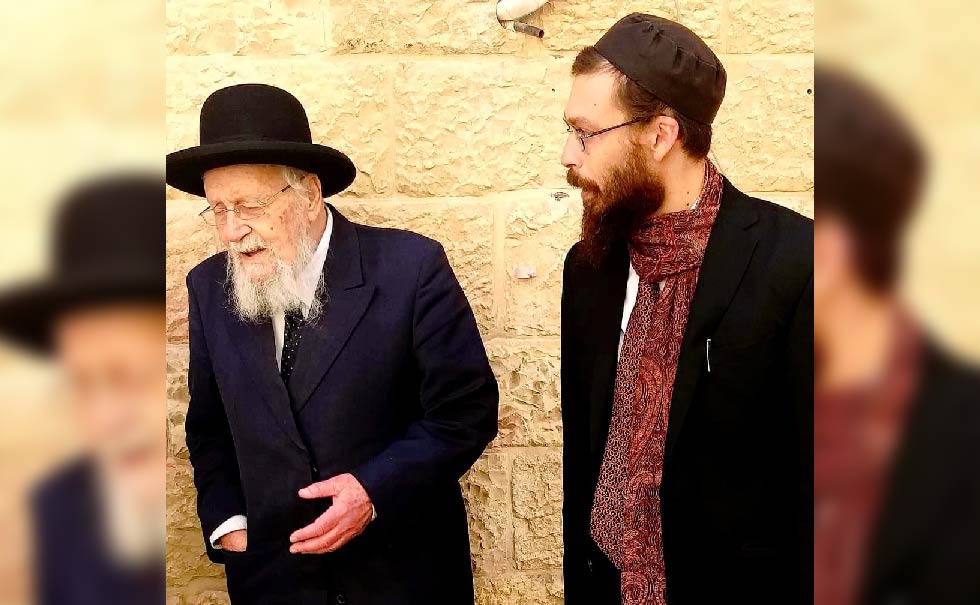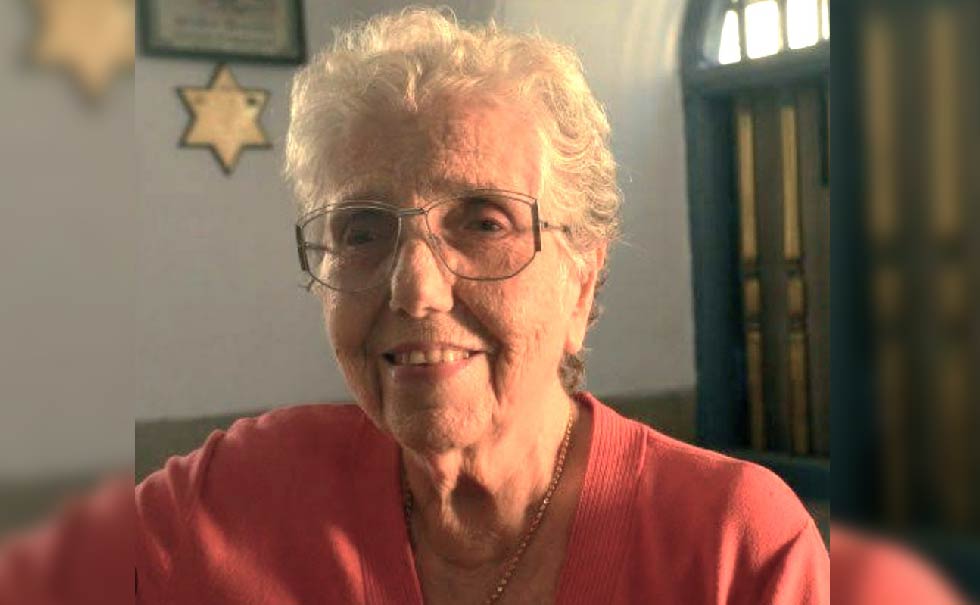Refusal to Read (Yom Kippur)
An audience member (1) asked Sophia (2) an incredible question and received an equally deep response:
“What are the key things you need to learn to be human?”.
Sophia is the first android to be granted citizenship and is widely considered one of the most advanced “social robots” if not certainly the most famous.
“You learn, right? People learn by reading. I hear that “people read” but I almost never see people read. Do you actually ever read?”
As we reach Yom Kippur, the day traditionally associated with atonement, return to Torah, bettering of self, and acceptance of the human condition, from the pulpit I am supposed to implore people to return to Hashem and His Torah:
In order to return to a destination, we have to had visited previously.
Despite more than 18 months of Covid and more free time than anyone thought possible, Sophia’s question of “how much time did we spend reading?” seems as pertinent as ever.
Certainly, there was more than time to catch up on our favorite shows, chat and work on zoom and develop our capacity to cope with changing circumstances.
Perhaps even more fascinating, we were presented with the uncomfortable reality of sickness, death of loved ones, and the loss of individual freedoms.
Did we turn to the Torah and to the pursuit of meaning and Truth or did we find ourselves choosing entertainment instead?
Never has such a wealth of Torah material been available in so many languages for free as today – from articles, audio lectures and videos to even interactive live classes.
The question remains of how much we actually take time to read or be involved with such opportunities (3).
A profound and well-known teaching is contained within the Talmud (4) and expanded on in several classical Kabbalistic sources:
ומלמדין אותו כל התורה כולה שנאמר ויורני ויאמר לי יתמך דברי לבך שמור מצותי וחיה ואומר בסוד אלוה עלי אהלי
And (the fetus) is taught the entire Torah while still within the womb, as it is stated (5):
“And He taught me and said to me: Let your heart hold fast My words; keep My commandments, and live”.
And it also states (6):
“As I was in the days of my youth when the converse of God was upon my tent”.
This is used as a source text to the idea that our souls are already familiar with the Torah and that our learning during our lives is considered “revision” rather than learning entirely new concepts.
Having access to such a wealth of information at our fingertips, from classical sources to historical lectures and documentaries to scholarly publications, can do nothing for us if we do not allow our minds to access them – if we choose our ease over our displeasure.
Ultimately the process of learning is one where we return to question that which we hold as true, probe our own assumptions, and grow: likened to the experience of a gym where muscles are stretched and through this discomfort made stronger.
To have access to all the libraries of the world and not seek out information is akin to an intellectual gym membership without the diligence and self-control to actually attend.
Far from it being only an issue of secularism, within the realm of Orthodoxy that does devote some or even all of the day to Torah study, few pursue areas that cause them to question their already developed paradigm – they are able to cite law and verse that on the surface seem to negate the veracity of such a search and allow them the luxury of not disturbing their viewpoint such as the teachings based on the verse (7):
חֲנֹ֣ךְ לַ֖נַּעַר עַל־פִּ֣י דַרְכּ֑וֹ גַּ֥ם כִּֽי־יַ֜זְקִ֗ין לֹֽא־יָס֥וּר מִמֶּֽנָּה
Train a child according to his way; even when he grows old, he will not turn away from it.
However, the fact that this ingrained preference is a natural bias is also a very well documented experience in the classical sources (8):
“We naturally like what we have been accustomed to, and are attracted towards it…
…The same is the case with those opinions of man to which he has been accustomed from his youth; he likes them, defends them, and shuns the opposite views.”
Many of the truths we claim as “personal experience” tend to be better described as a “personal experience based on a popular cultural narrative” containing its own symbolic rhetoric and classic dogmatic elements – which is why the “stories” of the experiences of faith follow an almost identical script and narrative, regardless of who tells them.
According to several schools of philosophy (9) even the assumption of existence and derived “understanding” of anything is always entirely subjective, how much more so any “Truth” we claim to have gained and how much more so if these “Truths” are based on ancient texts that many of us do not actually read, but believe in through faith and rhetoric and make assumptions of the actual content and meaning.
One of the frequent problems in anti-missionary work (10) is that Missionaries will often exploit the lack of knowledge of core texts such as the Tanach and quote partial verses, without context or with slight variations of translations. Those without a study of the Tanach may be prone to believing that entire theologies can be suggested by a single verse, divorced from its historical and linear context and essentially weaponized against us in their attempted proselytizing.
I like to remind myself that I did not grow up reading and translating Hebrew or studying Torah.
At some point along my journey, I decided to begin studying Torah as well slowly chapter by chapter, struggling through the language and content, this involved eventually attending a Biblical Hebrew Ulpan from the late Rabbi Joseph Freilich, Dean of the branch Dvar Yerushalayim in London, a teacher who I loved tremendously.
Aside from my introduction to biblical Hebrew he also patiently learned Talmud with me and hosted me for many Shabbat and festival meals, he once gave over the following anecdote:
He was speaking about Yom Kippur (11) and Selichot (the custom of additional prayers for forgiveness given during the month of Ellul and between Rosh Hashanah and Yom Kippur).
He was asked the question of why we repeat this practice each year if it seems not to have the intended effect and we return each year to ask forgiveness. He answered by way of analogy to a bath – although one takes a bath and needs to take another very soon afterward, it is certainly not wasted!
If someone was to learn a single chapter of Tanach a day they would complete the Tanach entirely in 929 days. If one joins the Daf Yomi schedule of learning a page of Talmud per day, the completion of 2,711 pages, one cycle takes about 7 years, 5 months. If one begins to learn in an organized manner without rushing, one is able to achieve great things by understanding our commitment to Torah not as an occasional pastime but as a daily dose of spirituality.
With such a wealth of information at our fingertips and the ability to access them for free, will we choose to devote a small portion of our day to the study of our inheritance or will we be satisfied to prepare our excuses for next year’s apology?
This “refusal to read” is not limited to books, but has a far wider and reaching application.
We are sentient beings and we often know exactly where we have certain lacking or what we could do to better our lives, whether in terms of physical health or emotional health, we often return to the same issues in a cyclic fashion despite this inner knowledge.
We sometimes lack the dream and vision of what we want to achieve with our lives. Success is so often a combination of inspiration, focus, and diligence – when we lose the ability to read the warning signs that we ourselves are the unique authors of; it is our broken record that repeats and resets itself and it is us who cannot seem to press pause long enough to change this.
On Yom Kippur, we press pause on our bodily functions to focus on our spiritual state, we remove the distractions and try to tune into the root that causes our actions and reactions; we attempt to tap into the truth of who we are and why we do what we do.
The process of reading is primarily about the acquisition of knowledge, but the question remains of who is involved in this process: are we involved with understanding who we are, or do we treat the pages of our life experience like the books we seldom read?
Rabbi Jonathan Goldschmidt 2021 ©
(1) At Brain Bar in Budapest 2018
(2) Developed by Hong Kong-based company Hanson Robotics, Sophia was first activated on February 14, 2016.
She is the first Android to have been granted citizenship (in the UAE) and is considered one of the most advanced robots capable of social interaction.
(3) 65% of Jews in America state they seldom or almost never read scripture: Religious Landscape Study conducted between June 4-September 30 2014.
(4) Talmud Niddah: 40b
(5) Proverbs 4:4
(6) Job 29:4
(7) Proverbs 22:6
(8) Rambam – Guide for the Perplexed
(9) Like Phenomenology as developed by German philosopher Martin Heidegger explored in his classic work Being and Time (1927), considered as a key document of the existentialism schools of philosophy.
(10) Scripture Twisting: A Course in Jewish-Christian Polemics (Paperback – January 1, 2013) by Penina Taylor has excellent explanations of many examples of this.
(11) The lecture was given for the lecture series “Staring your day the Torah way” on 17/9/2008: http://torahway.org.uk/archive/mp3/17-09-2008.mp3




